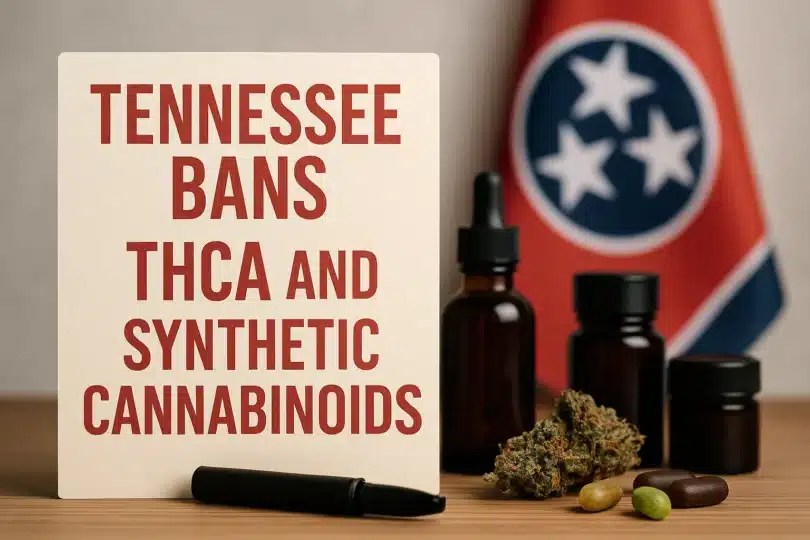Tennessee Governor Bill Lee has signed a sweeping new law—dubbed the ‘Hemp-Killing’ bill—that bans THCA, hexahydrocannabinol (HHC), and other synthetic cannabinoids, prohibits online hemp product sales, and moves oversight from the Department of Agriculture to the Alcoholic Beverage Commission (ABC). The changes take effect in early 2026, dramatically reshaping the state’s hemp-derived cannabinoid market.
Supporters argue the law protects consumers—especially kids—from high-potency products often sold in colorful packaging and online stores. THCA and synthetic cannabinoids like HHC carry unpredictable psychoactive effects, and consumer advocates have flagged numerous vape-related illnesses and poison-control cases involving youth. The bill’s sponsors say the stricter rules will foster transparency, safety, and state-level accountability.
From a commercial perspective, the impact is vast: many small hemp businesses rely on selling THCA tinctures, HHC-infused gummies, and vape cartridges online. With direct-to-consumer channels shut, manufacturers will be forced into retailers regulated by the ABC—adding licensing costs and shifting market access. Critics warn that these changes risk pushing consumers back to the unregulated black market, where testing and quality control are lax.
Culturally, the bill speaks to an ongoing public health balancing act: enabling hemp-derived innovation while containing extremes through regulation. Tennessee joins a growing cohort of states (like Germany, Czechia, and Slovenia) moving to regulate or ban synthetic cannabinoids. This signals a shift in tone—from lax legal gray zones to firm regulatory control.
Experts commend Tennessee’s health-first approach but suggest regulators must include education campaigns on product safety, especially around dosing variability and chemical composition. They also urge the ABC to adopt risk-based licensing and consider a phased framework for manufacturers transitioning to compliant models.
Consumers, especially those who rely on hemp-derived cannabinoids for wellness, may face reduced access or higher prices. Yet, tea‑time users, senior tincture consumers, and cautious wellness seekers might benefit from the increased regulation—knowing products meet enforceable standards and aren’t adulterated.
Looking ahead, Tennessee’s move is shaping a broader dialogue across states and federal agencies. If enforcement proves effective, other regions may emulate the model. But if illicit supply expands, it may trigger calls for adjustments—such as exemptions, tighter packaging laws, or consumer protections.
Source: Cannabis Business Times

